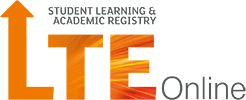The LTExChange Network – what is the purpose of the network?
Intended primarily as an online community of practice, the new LTExChange Network will bring together education and service-based practitioners working across the University to inform, support, and share learning and teaching practice innovations and initiatives.
The Network is staff-focused, providing and supporting relevant and worthwhile opportunities for academic and professional service staff to share and discuss learning and teaching practices, projects, and initiatives, as well as the chance to co-host and co-facilitate LTExChange symposia.
How do I get involved?
If you haven’t already done so, please contact LTE@tees.ac.uk if you wish to register as a LTExChange Network member. Members can access symposia recordings and materials, as well as sign up to additional events and offerings throughout the academic year.
Focus for 2024-25 LTExChange Symposia Series: “Learning Futures”
As higher education providers continue to negotiate the complexities of a changing and uncertain policy landscape, it is recognised that considerations regarding learning futures and digital technology converge at the level of the system, the organisation, the community, the teacher, and the learner, with themes of automation, efficiency, flexibility, visibility, inclusivity, and equity the focus of intense attention and debate. Indeed, we might argue that universities are in the business of “future-making”. As educators, we facilitate and enable students to think critically and creatively about their prospects, to begin to generate visions of future possibilities for learning and practice, and to initiate action in pursuit of these. Prospective learning futures will necessarily reflect the entangled relationships between people, technologies, and digital media. Innovations in digital media continue to change the way we communicate, source, and share, and engage with information. The now standard integration of mobile technologies and multi-purpose digital devices in higher education practice environments has blurred the boundaries between the physical and the virtual, ushering in a new orientation toward learning that is increasingly experiential, flexible, and connected.
Today, educators and the students they teach receive and work with different forms of information across a range of modes when socialising, engaging in education, or entering the workplace. Students also bring with them a diverse mix of experiences and expectations to higher education in terms of their academic skills, communication environments, as well as cultural and geographical backgrounds. This is why multimodal learning matters and is core to the focus of this year’s symposia series exploring “Learning Futures”. Universities must capitalise on the affordances of the multimodality of digital educational environments to realise a broader range of possibilities for teaching and learning practices. The annual LTExChange Symposia Series will bring together and engage key stakeholders to support new thinking and share practice innovations as we consider what it means to embrace a learning futures perspective. We will explore a range of future-making themes, exploring some of the specific ways ideas about digital futures in particular might be grasped and critically considered in practice. Through the series we take a look at some of the research and thinking that informs a ‘Learning Futures Perspective’ as a site for critical engagement, professional learning and pedagogic development. The series will be of interest to any Teesside colleagues with an interest in and/or responsibility for supporting and delivering an inclusive and future-facing student learning experience.
Building on the participatory model deployed in previous years, the 2024-25 Symposium series aims to provide designated space and scope for interrogating a range of theoretical and applied interpretations and perspectives and generating collaborative, reflexive discussions, and debate.
2024-25 LTExChange Symposia Series
The first LTExChange Symposium takes place on Wednesday November 27th exploring the theme of ‘Harnessing (Gen)AI to Promote Student Learning’.
Our keynote address (09.00 – 10.00am) will be given by Dr. Martin Compton (Kings College, London) who will be discussing how we can leverage Generative AI for a transformed teaching and assessment future.
Dr. Compton’s talk is entitled: Generative AI for a transformed teaching and assessment future: time for Socratic wisdom?
Talk Outline
How do we understand purposes of a university education? What and how should we teach? What’s the goal of assessment? AI (broadly) and Generative AI (in particular) pushes us to reflect on our conceptualisations of education, because it challenges many of the long-accepted norms of what we teach, how we teach and how we evaluate the outcomes of that teaching. Whether we construct a perception of education that is more didactic or Socratic and conceptions of assessment that are more evaluative or developmental will be informed by many aspects of our personal and professional lives. Noting Socrates’ worries about the technology of writing as likely to make us all stupid (paraphrasing!), Martin will draw on the (also reputed) words of Socrates: “All I know is that I know nothing” as a starting point for discussions about effective ways in which we might navigate a newly discovered, largely unknown and rapidly changing technological landscape that has immediate and far-reaching implications for all of us.
Disciplinary Insights – sharing practice!
The LTExChange symposium explores the challenges and opportunities for embedding Gen(AI) within our learning and teaching practices and course designs. To this end, the panel discussion component of the symposium will bring together colleagues from across the university to discuss a range of practice-based work aligned to the broader theme of ‘Harnessing (Gen)AI to Promote Student Learning’.
Meet our panel members!
Dr. Mark Butler – Senior Lecturer in Crime Scene Science in the School of Health and Life Sciences.
Charlie Tait – Senior Lecturer in Graphic Design and Digital Media in the School of Arts and Creative Industry.
Professor Sarah Perks – Professor of Curating in the School of Arts and Creative Industry.
Dr. Paul Stewart – Principal Lecturer (Research and Knowledge Exchange) in School of Arts and Creative Industry.
Lynne Hugill – Principal Lecturer (International) in School of Arts and Creative Industry.
To book the first Symposium Events please click here
